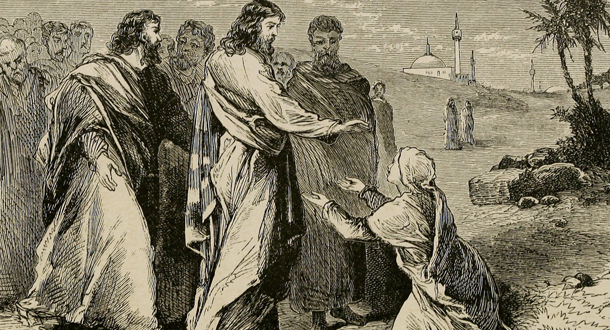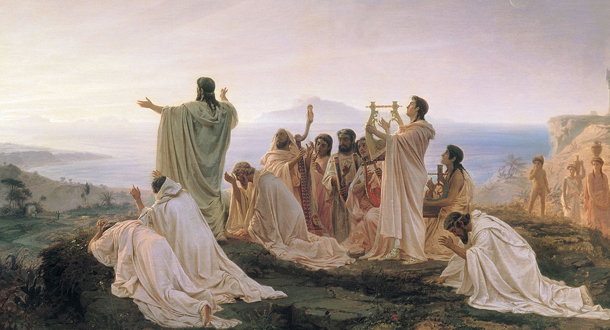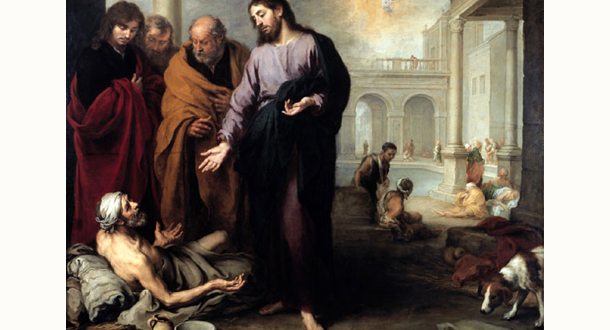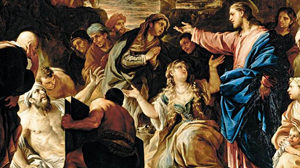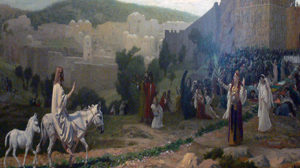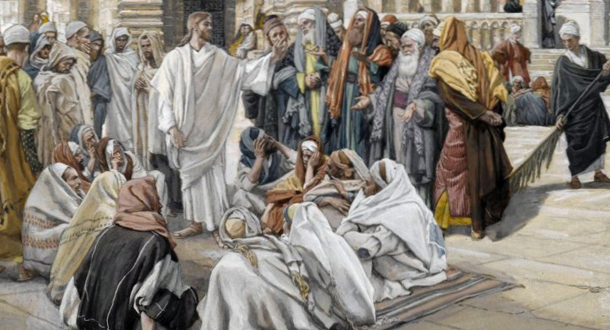
Scripture:
Jeremiah 11:18-20
John 7:40-53
Reflection
Our readings today focus on two men, Jeremiah and Jesus, surrounded by people who would love to see them fail.
Jeremiah is violently opposed by people who fear goodness and resent the truth. Instead of heeding the word of God he has spoken, they want to kill him for proclaiming it: “Let us destroy the tree in its vigor; let us cut him off from the land of the living, so that his name will be spoken no more.” Sometimes, like Jeremiah, we may find ourselves surrounded by people who would love nothing more than to see us fail. How are we to respond when they, like those who opposed Jeremiah, hatch plots against us? First, we must remember that we do not gain power over evildoers by becoming like them; rather, we triumph over evil by remaining faithful to the love and goodness of God. Second, we gain power against evildoers, as Jeremiah did, by entrusting ourselves to the Lord, knowing that in God there is a love and goodness no evil can destroy.
If our first reading urges us to find refuge in God, today’s gospel suggests there are times when God must take refuge in us. The gospel story recounts a scene in which people are sharply divided about Jesus. The chief priests and some of the Pharisees want to silence Jesus by arresting him while others boldly proclaim, “This is the Christ.” The passage reminds us that in a world where there are people opposed to everything Jesus is about, we must safeguard the ways of God by being straightforward about whom Jesus is for us. Is it abundantly clear by our words and our deeds that Jesus is life for us and that we have given our hearts to him? If it is, the cause of Jesus continues to live through us.
Today’s readings confront us with an important truth: If we often must take shelter in God, it is also true that the God who comes to us in Jesus sometimes must take shelter in us. It’s a beautiful image of two loves watching out for one another, keeping each other safe from harm.
Paul J. Wadell is Professor of Theology & Religious Studies at St. Norbert College in De Pere, Wisconsin, and a member of the extended Passionist family.

